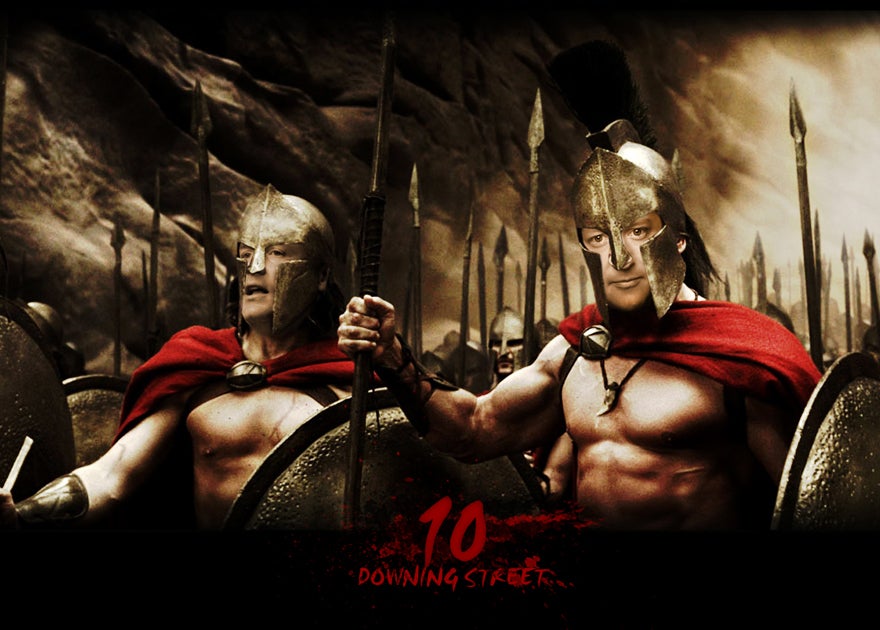Clegg and Cameron: Britain's Spartan Kingship

This Monday 'Dave and Nick', as the PM and his deputy are to be known, gave a press conference backing their ambitions for the next five years. This government would be “a radical, reforming government where it needs to be and a source of reassurance and stability at a time of great uncertainty,” said Nick Clegg. He may not have known it, but he was delivering a Spartan manifesto.
Most equate Spartans, not altogether wrongly, with the impossibly chiselled warriors from graphic shock-fest 300. Yet Sparta's awesome army was propped up by a rigid governmental system, at the front of which stood not one but two kings. The kings presided over a privy council of 28 elders, five of which, the ephors, decided policy and made sure each king had the state's best interest at heart.
It worked perfectly. While enemies quarrelled over affairs Sparta's two kings could do it all at once. Neither king could outweigh his opposite's veto, so decisions were swift and final. It meant both could wage war separately, or govern back home. This autocratic stability was at odds with the Athenians in particular, whom Sparta would defeat in 404BC, who obsessed over rhetoric and debate.
Did having two kings create tension? You bet. “Two royal houses – twice the potential for the rows that all monarchies are prone to,” points out historian Bettany Hughes in her recent Ancient Worlds series. “The Spartans explained this arrangement by claiming that their kings were direct descendants of the great-great grandsons of Herakles, the strongman of Greek myth.”
Nick and Dave's ancestry are well-documented: Clegg the grandson of Russian nobility; Cameron the blue-blooded offspring of a Baronet's daughter. Neither can claim to be the son of a god, yet. And they can tick rowing off the list having called each other 'arrogant' and 'a joke', among other pleasantries, during the election campaign.
Eventually Sparta's dual kingship would prevent it spreading its wings - “Some historians call this stability 'political stagnation',” says History Walker Herald - and by the end of Sparta's renaissance its two kings were little more than ceremonial generals pandering to radical councillors. With Britain facing economic turmoil and a pair of unpopular wars, Nick and Dave's partnership might not last beyond the next election. But if their coalition is questioned in future, maybe a line from Gerard Butler's Leonidas would be apt: “Madness? This is Sparta!”
Was the Ancient Greek city-state the greatest political system ever?
Join our commenting forum
Join thought-provoking conversations, follow other Independent readers and see their replies
Comments
Bookmark popover
Removed from bookmarks